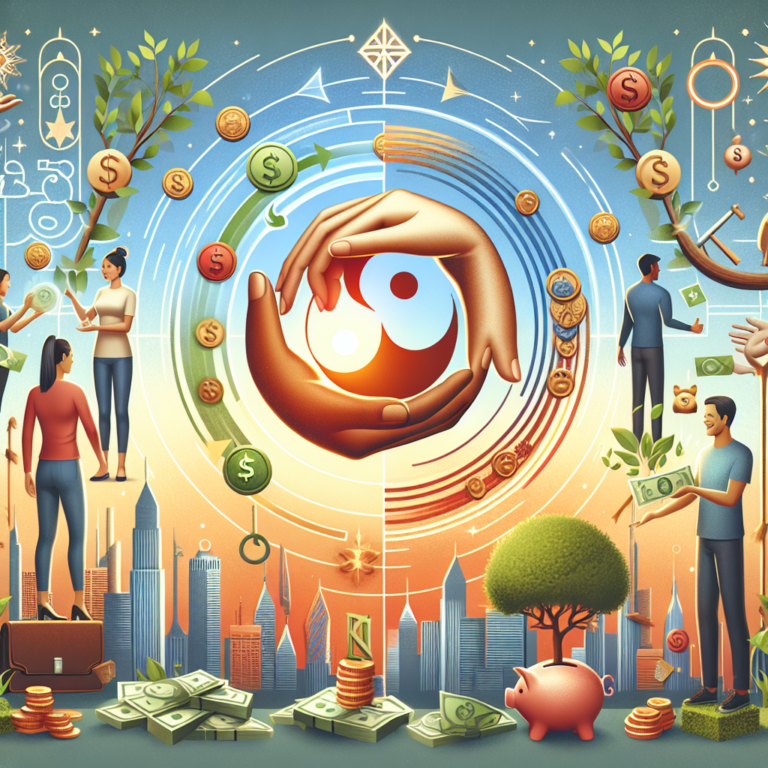Karma, a term that evokes various interpretations across cultures and philosophies, is often simplified to mean "what goes around comes around." However, the concept’s depth goes far beyond this catchy phrase. Rooted in ancient spiritual traditions, karma represents a complex interplay of actions, intentions, and consequences that shape our existence. Understanding karma can empower individuals to make more conscious choices, leading to a better understanding of how our actions influence not only our own lives but also the lives of those around us.
The Origins of Karma
The term "karma" originates from Sanskrit, meaning "action." It is a fundamental principle in Eastern religions, particularly Hinduism and Buddhism. In these philosophies, karma is not merely a cosmic balance sheet but a moral law of cause and effect. According to this understanding, every action—whether physical, verbal, or mental—holds seeds for future outcomes.
Hindu scriptures describe karma as a cycle that governs birth, death, and rebirth (samsara). The actions taken in one life will determine the circumstances of the next. Buddhism, while sharing a similar view of interconnectedness, emphasizes intention behind actions as a pivotal factor in shaping karma. According to Buddhist thought, a good intention leads to positive karma, while a harmful intention creates negative karma.
The Mechanics of Karma
To truly grasp how karma influences our lives, we need to delve deeper into how it operates. Karma is intricately connected to the concepts of intention and action. It’s not solely the deed itself that matters, but the motivation behind it. An act driven by compassion may lead to beneficial outcomes, while an action rooted in selfishness may yield harmful results.
1. Intentions Matter
In the landscape of karma, intentions act as a lens through which actions are magnified. Positive intentions can lead to positive outcomes, even if the action doesn’t yield the desired result. Conversely, negative intentions, regardless of the outcome, can produce unfavorable karma. For instance, an individual donating to charity primarily for public recognition might create different karma than someone giving selflessly out of genuine compassion.
2. The Interconnectedness of Actions
Karma also illustrates the interdependence of all beings. Our actions can ripple outwards, influencing others and creating a network of cause and effect. A single act of kindness can inspire others to act benevolently, generating a cascade of positive karma that transcends individual lives.
3. The Time Factor
One of the complexities of karma is its temporal nature. The fruits of our actions may not manifest immediately or even in our current lifetime. This delayed gratification can be puzzling, as individuals may feel that their good deeds go unnoticed, or their harmful actions are unpunished. However, the belief in karma maintains that nothing goes unaccounted for, and the repercussions—good or bad—will eventually unfold in due time.
Karma in Everyday Life
Understanding karma can have profound implications for our day-to-day lives. By recognizing the potential long-term consequences of our actions, we can begin to approach life with greater mindfulness and intention. Here are some practical applications of the concept of karma:
1. Mindful Decision-Making
When faced with choices, consider the broader impact of your actions. Whether it’s in personal relationships, work ethics, or social dynamics, reflecting on the potential outcomes can promote more mindful decision-making. By prioritizing actions that align with compassion and integrity, individuals can contribute positively to their lives and the community.
2. Taking Responsibility
Karma places emphasis on personal responsibility. Acknowledging that our actions shape our reality encourages individuals to take ownership of their choices. Rather than blaming external factors for our circumstances, we can cultivate a sense of empowerment by realizing that positive change starts within.
3. Cultivating Positive Habits
The practice of cultivating positive actions leads towards a more harmonious existence. Simple acts of kindness, like helping a neighbor or showing gratitude, can create a ripple effect that enhances the collective wellbeing. By nurturing positive habits, individuals help create a balanced karmic landscape.
4. Embracing Forgiveness
Negative karma can weigh heavily on individuals who dwell on past actions, whether their own or those inflicted by others. Embracing forgiveness, both of oneself and others, can free individuals from the shackles of negative karma. This can open the door to healing and new possibilities for positive actions.
The Role of Reflection and Growth
The journey of understanding and interacting with karma is continual. Life becomes a platform for learning, growth, and transformation. Reflecting on past actions can offer enlightenment and pave the way for better choices in the future. Those who engage in regular introspection are more likely to cultivate wisdom and make use of their karmic lessons.
As individuals evolve, so too does their understanding of karma. What may have felt like an intentional act can be recognized as ill-advised in hindsight; learning from these experiences fosters growth and promotes a deeper responsibility towards one’s actions moving forward.
FAQs about Karma
Q1: Can karma be changed or altered?
A1: Yes, karma can be modified through conscious actions. By cultivating positive intentions and acting with compassion, individuals can generate positive karma that may counterbalance past negative actions.
Q2: Does karma affect everyone equally?
A2: Karma is personal and unique to each individual. While the principles are universal, the outcomes of karma can differ based on circumstances, intentions, and actions.
Q3: Is karma a form of punishment?
A3: Karma is not necessarily a punishment but rather a natural law of cause and effect. It reflects the consequences of one’s actions rather than serving as retribution.
Q4: How can I create positive karma?
A4: Positive karma can be created through acts of kindness, compassion, and service to others, as well as through living in accordance with your values and intentions.
Q5: Can negative karma affect future generations?
A5: While individual karma is personal, the actions of one person can create a ripple effect that influences the lives of others, including future generations. Therefore, collective actions can have broader implications.
Q6: What should I do if I feel burdened by negative karma?
A6: Acknowledge past actions and take responsibility for them. Engage in self-reflection, seek to learn from the experience, and focus on creating positive actions moving forward.
In conclusion, the concept of karma invites us to explore the profound implications of our actions and the interconnectedness of all life. By engaging with this ancient wisdom and living consciously, we can shape not only our futures but the world around us. Ultimately, embracing karma encourages a more mindful existence, where compassion and responsibility pave the way for a brighter tomorrow.
It seems like you entered “Prompt” without any additional context. Could you please provide more details or specify what kind of prompt you are looking for? Are you interested in a writing prompt, a question for discussion, a creative idea, or something else? Let me know how I can assist you!, #Karma #Unveiled #Actions #Shape #Future #Lives, #Karma #Unveiled #Actions #Shape #Future #Lives, 1735264507, karma-unveiled-how-our-actions-shape-our-future-lives





